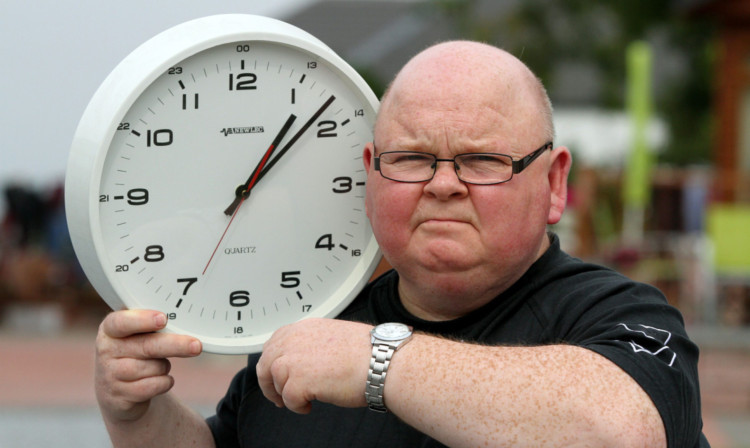Tayside man Jim Dunbar has been late for everything late for work, for football matches, for holidays.
He has kept women waiting on a first date, turned up to meals with friends hours after he should have, and even arrived for funerals long after they’ve begun.
But the 57-year-old said it isn’t his fault, after his poor timekeeping was diagnosed as a medical condition at a hospital appointment he was half an hour late for.
Despite his chronic lateness diagnosis, Jim, who has spent most of his life in Fintry, Dundee, still struggles to arrive on time as he tackles the incurable condition.
Recently Jim, who now lives in Forfar, tried to go to the cinema. Knowing that it could be a problem getting to the DCA in Dundee for a 7pm screening, he gave himself an 11-hour head start.
Jim said: “I got up at 8.15am to go to a David Bowie film at the DCA that started at seven o’clock and I was 20 minutes late. I get down about it and it’s disturbing for other folk when you arrive late.”
In his living room, the former Dundee City Council worker has a special clock that uses radio frequencies tuned to a national transmitter to make sure the time it displays is always exactly right, down to the second. It doesn’t help.
He has tried wearing a watch, setting his clocks fast and trying to arrive at places early, but still hasn’t found a solution.
He has had the problem all his life he can remember being late for school at Longhaugh Primary as a five-year-old and, until his diagnosis, blamed himself.
Jim’s condition affects the same part of the brain as attention deficit hyperactivity disorder and means that he cannot properly gauge how long things take.
“It is really depressing sometimes,” he added. “I can’t overstate how much it helped to say it was a condition.”
